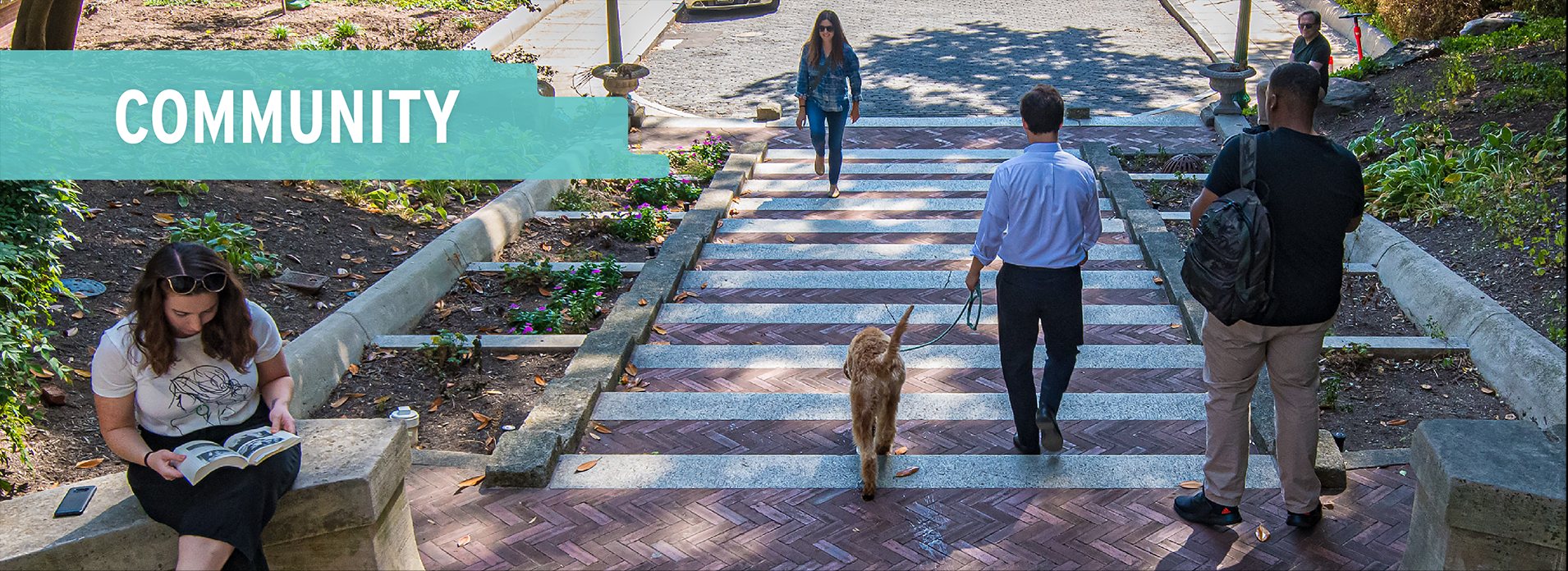
Our community is connected by the desire to inspire change and pursue new ways of making the world a better place. We learn together, stand together, debate together, and find new solutions to old problems together. Strivers, dreamers, scholars, and leaders join forces on our campus because to us, no issue is too small, no challenge too great.
Whether we are welcoming 20,000 bees to our arboretum or providing free educational services to furloughed federal employees during the longest government shutdown in US history, we solve problems.
We are constantly finding new ways to collaborate across disciplines. We are nurturing our roots within our home city. We are forging new partnerships and strengthening existing ones. Because at AU, we know working together makes all the difference.
Creating Paths to Jobs in the Digital Workforce
In today’s digital workforce, employers expect newly minted college graduates to have a working knowledge of data analysis, visualization, and cybersecurity.
AU is leading the DC region in developing a new generalist digital technology credential that helps students gain those skills in partnership with the Capital Collaborative of Leaders in Academia and Business (CoLAB).
The digital credential’s 13-credit curriculum is built from existing Kogod School of Business classes in statistics, information technology, and business professionalism. Launched in fall 2019, it is the first of several digital credential pathways, says Jill Klein, interim dean of the School of Professional and Extended Studies and executive in residence for information technology and analytics.
“In keeping with our strategic goal of inclusive excellence, it was important that we had a path that any student could follow,” Klein says.
CoLAB connects AU and 11 other area universities with the Greater Washington Partnership, a consortium of business leaders from Baltimore to Richmond seeking recent graduates who have honed these vital digital skills. Students who achieve the credential will be given priority for internships and interviews at CoLAB-affiliated firms.
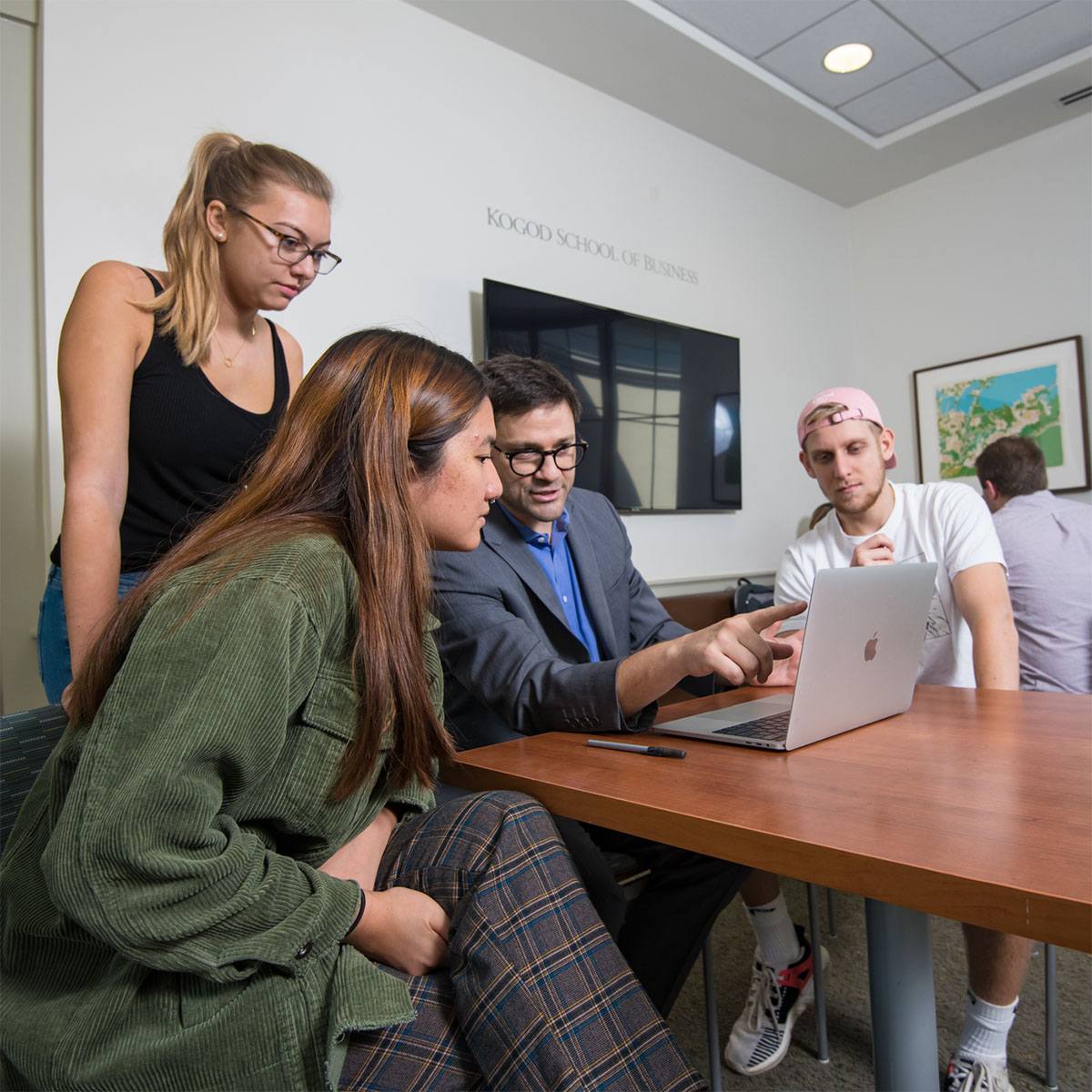
Skills for the Digital Age
Technology has always transformed the way people work, and professionals are expected to have more skills than ever in the digital age. To prepare graduates for today’s data-driven workplace, AU has partnered with leading employers to develop a credential that will equip them with knowledge and skills in six fundamental areas:
Prospective Teachers for DC Public Schools
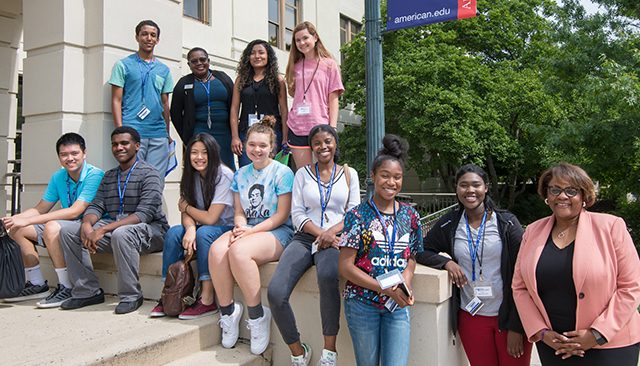
AU is cultivating homegrown talent and inspiring DC’s next generation of educators through its Dual Enrollment Program, a partnership between SOE and District of Columbia Public Schools (DCPS).
Eight high school seniors were selected for the first year of the program that introduces teaching as a career option, enables high school students to accrue early college credit for education degrees, and creates a ready-made pipeline of prospective teachers for DCPS.
The students enrolled in Education 205: Schools and Society and Education, a study of contemporary education and its social context, and Education 280: Social Justice in Urban Education, an analysis of the nature and impact of race and class on social justice issues.
“With looming teacher shortages and sharp declines in the number of teachers of color, this program has the potential to supply DC with a pipeline of new, diverse teachers,” says SOE dean Cheryl Holcomb-McCoy.
Humanities Truck Drives Community Storytelling
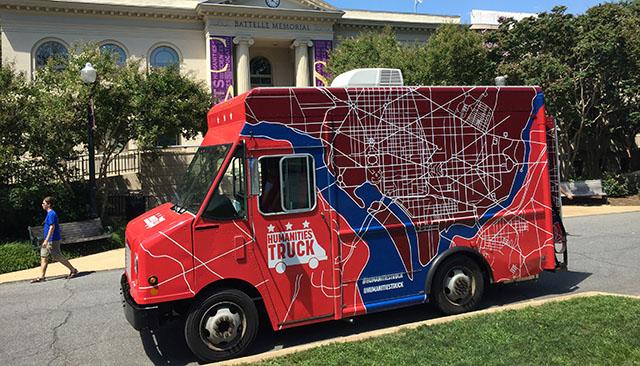
The fully loaded DC Humanities Truck brings an all-in-one recording studio, mobile workshop space, and pop-up gallery designed to facilitate collaborative, community-based research projects to neighborhoods around the District.
Funded by $875,000 in grants from the Andrew W. Mellon and Henry Luce Foundations, spearheaded by AU public history program director Dan Kerr, and designed by Carly Thaw, CAS/BA ’18, the truck has rolled everywhere from the Cleveland Park Farmers Market to DC Pride.
Faculty and students interview Washingtonians on their own turf, exploring such issues as homelessness, immigration, and gentrification.
“What makes the truck project [unusual] is that scholars and city residents can work together to interpret and curate these stories—to create web-based projects and a digital repository,” Kerr says. “By using the truck to create new conversations that bridge the chasm between the university and communities, both sides can gain from learning from each other.”
Bees, Hot Water System Improve Sustainability
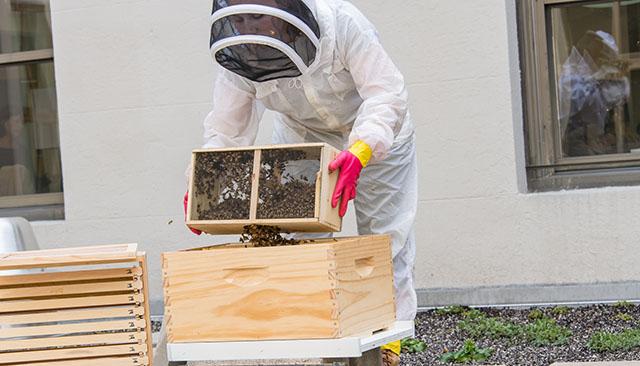
Two years after obtaining carbon neutrality ahead of its 2020 goal, AU continues its commitment to sustainability with conversion of the campus-wide heating system and a renovated home for the university’s bees.
The $28 million budgeted installation of the low-temperature hot water system enhances campus energy efficiency and reduces carbon emissions substantially. With reduced energy consumption and maintenance costs, the system, which is expected to last 40 years, will pay for itself in 10.
Facilities Management and the AU Beekeeping Society renovated the Mary Graydon Center’s green roof, increasing the stormwater holding capacity with pollinator-friendly plants that draw tens of thousands of bees inhabiting honey-laden hives. With each bee visiting 2,000 flowers per day within a three-mile fly zone, the benefits of biodiversity extend beyond the lush, green campus to surrounding neighborhoods.
Free Classes for Federal Workers Amid Shutdown
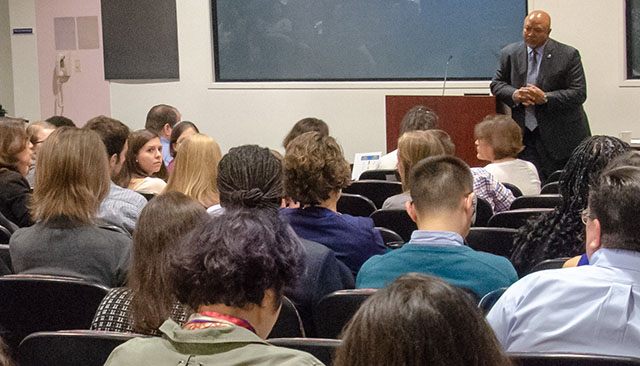
During a 35-day federal government shutdown, 550 furloughed workers from across the DC metropolitan area visited AU with something penciled into their calendars: Classes Without Quizzes.
The free, daylong event hosted by SPA featured 15 workshops on topics including workplace mindfulness, how to deal with change, managing across generations, emotional intelligence, and kindness in leadership.
AU professors volunteered to teach the classes. Dean Vicky Wilkins and her team at SPA pulled together the event in less than a week.
“Since our founding 85 years ago, our focus at the School of Public Affairs has been helping public servants advance their careers,” Wilkins says. “The people we hosted for this event are so dedicated to their jobs and our country. I was thrilled that we were able to come together as a university to show our appreciation for federal workers.”